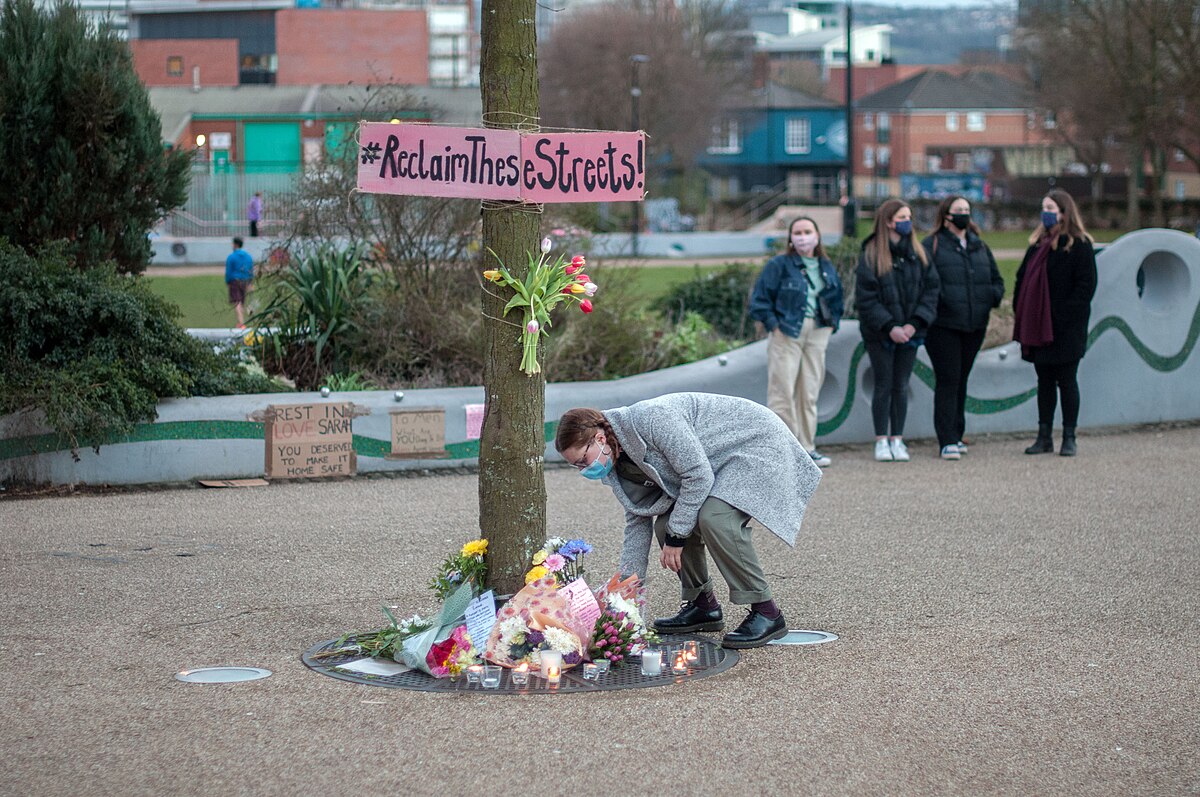
This month marks four years on from the murder of Sarah Everard. The tragedy of her murder is one that is still fresh in the minds of many and rightly so; this tragedy was a wake-up call.
At least it was to my peers, being 17 and attending an all-girls grammar school not far from the site of the attack. Looking around, it was obvious we were seeing things in a different way. Not the dangers of men – that was something we were all too familiar with. Most of us had been catcalled before the age of 15 and more often than not in school uniform. The problem was the man behind the attack, Wayne Couzens, was a police officer who had abused his rank and authority to abduct and kill Sarah. This was a new threat that we had not yet considered and was reinforced by the police’s violent response to a candlelit vigil in Sarah’s memory, for which they were forced to pay damages. It had never been clearer that there was no one to be trusted.
Fast forward four years and violence against women and girls has been declared a national emergency in the UK. Despite this, a woman in the UK is still killed by a man on average every three days. A man found liable for sexual abuse currently holds one of the most prestigious offices on the international stage and violent misogyny, enflamed by influencers, is becoming a rising problem in schools. It seems tragedies like Sarah Everard’s murder have altered the way many young women see the world, but not the system that allows women to be killed and abused. Even in recent news, the bravery of Gisèle Pelicot, who refused anonymity in one of the most high profile rape trials in recent history against her husband inspired many, but proved that there are inadequate protections in place for women.
The issue is that the system is not broken. The system is functioning exactly as it was intended and established to. It is no wonder that it cannot cope with the influence of the Tate brothers in schools or the continuous violence against women and girls. In the last four years, we have not moved forward in regard to women’s safety and with Reform and the far right’s rise, women’s safety at home and in healthcare settings are at risk. It seems there is a cycle emerging: a tragedy occurs, the government offers thoughts and prayers and it is left to happen again. Even schemes like “Ask Angela”, that were established to give women an exit from dangerous situations, have been proven completely redundant.
It is appalling that these things continue to happen to women, but it should not be women’s responsibility to protect themselves from every angle. Young men need to be educated, especially before they are online, as they are being increasingly radicalised by far-right influencers. In order to really, truly protect women, we cannot rely on knee-jerk reactions to horrible tragedies. We have to start from what we are told on the playground: “if he pulls your hair, it’s because he likes you”.
Edited by: Evangeline Shankland
Image: Flowers at Sarah Everard Vigil in Sheffield, Tim Dennell, 2021 // CC-BY-2.0



Average Rating